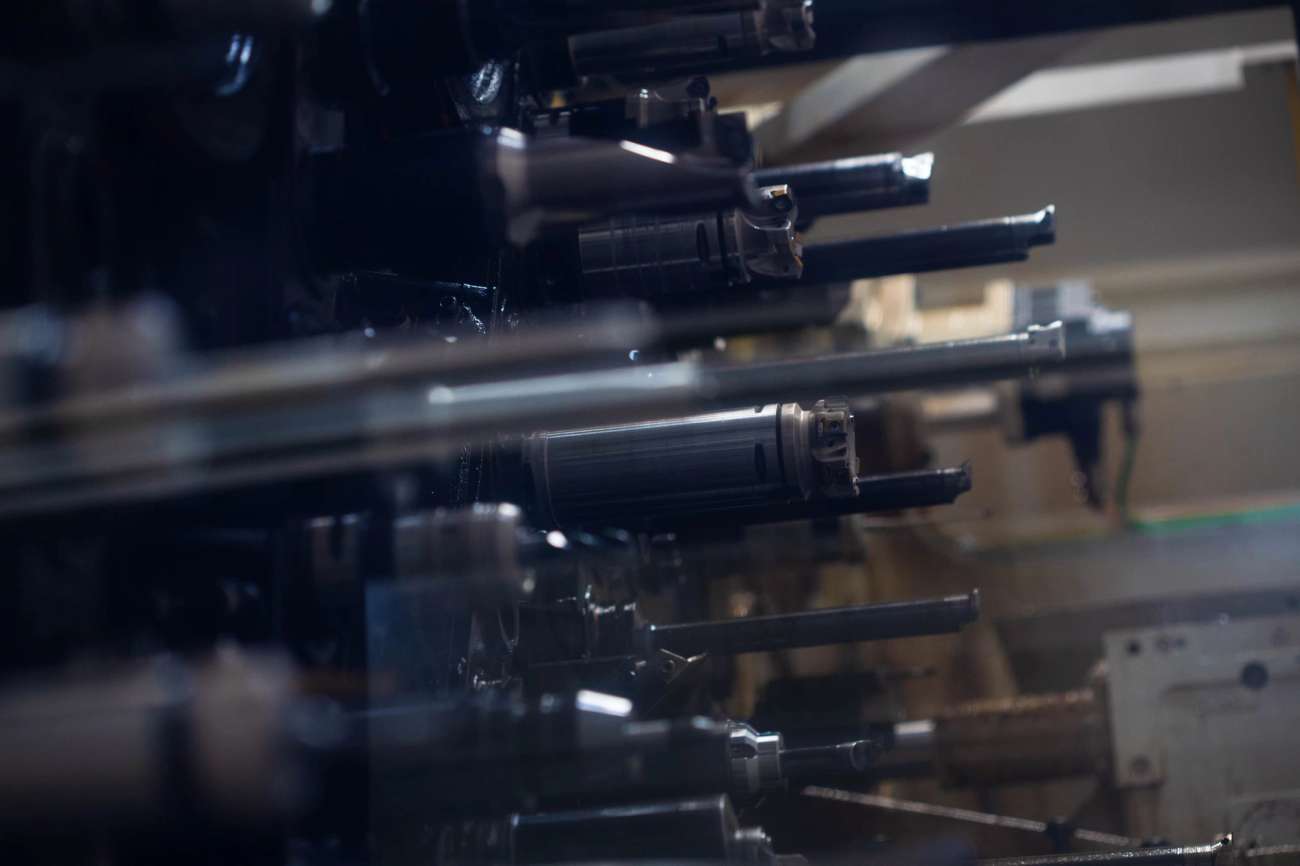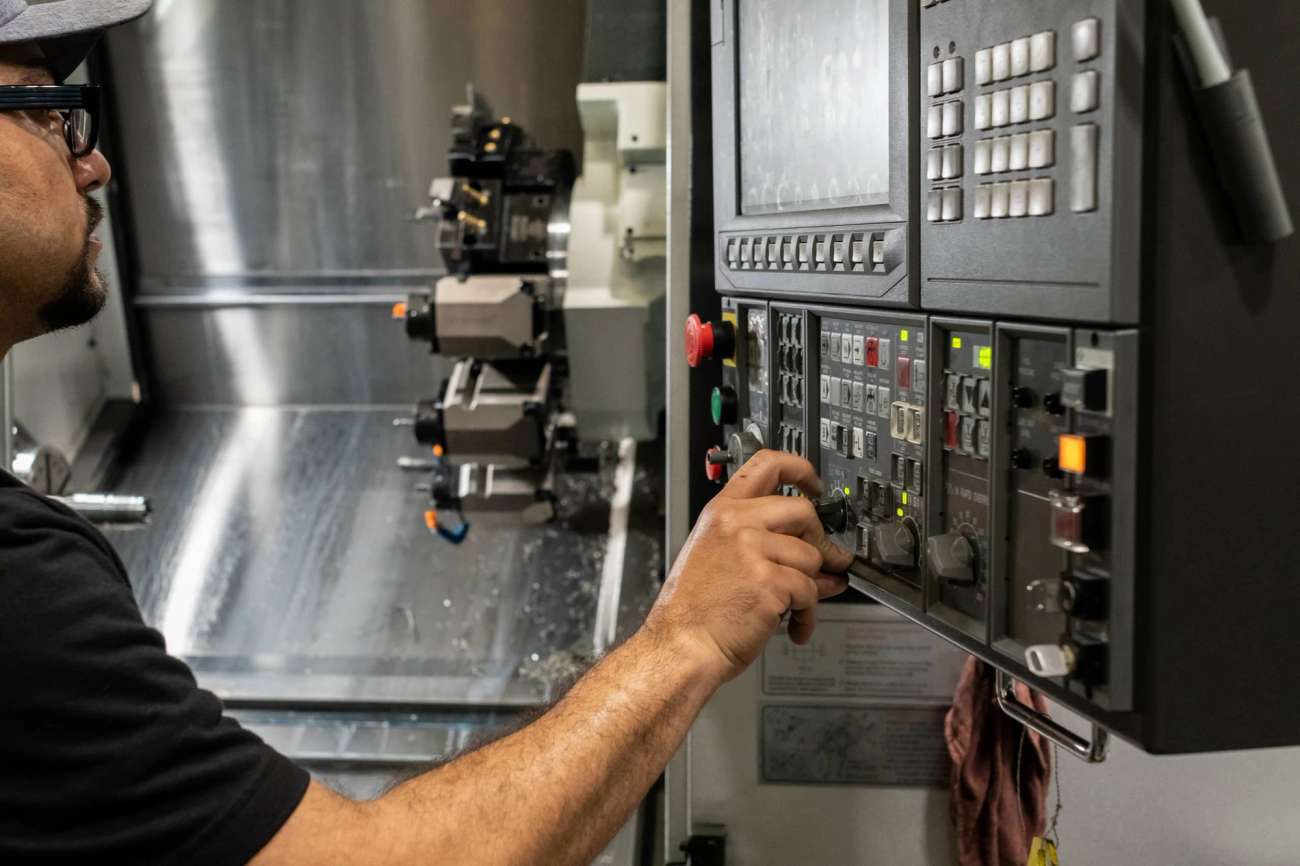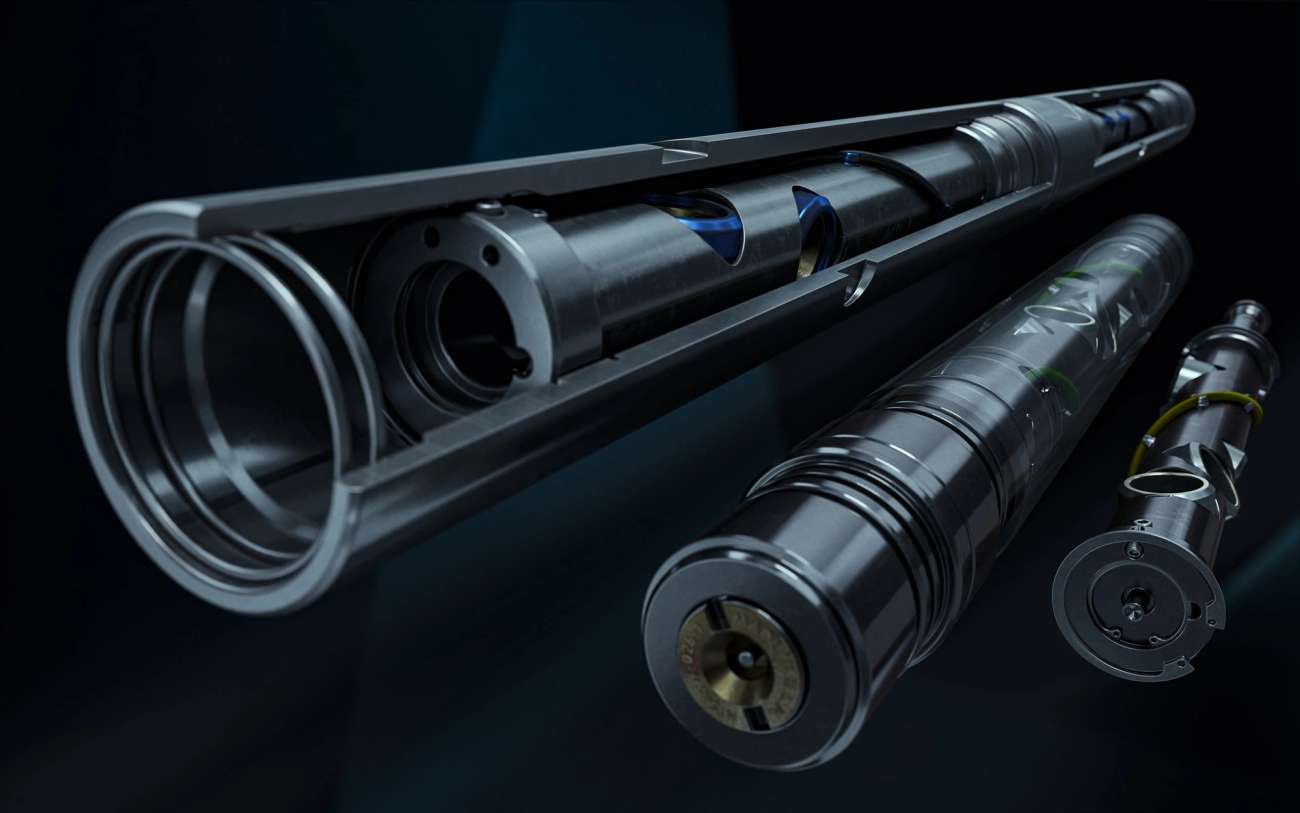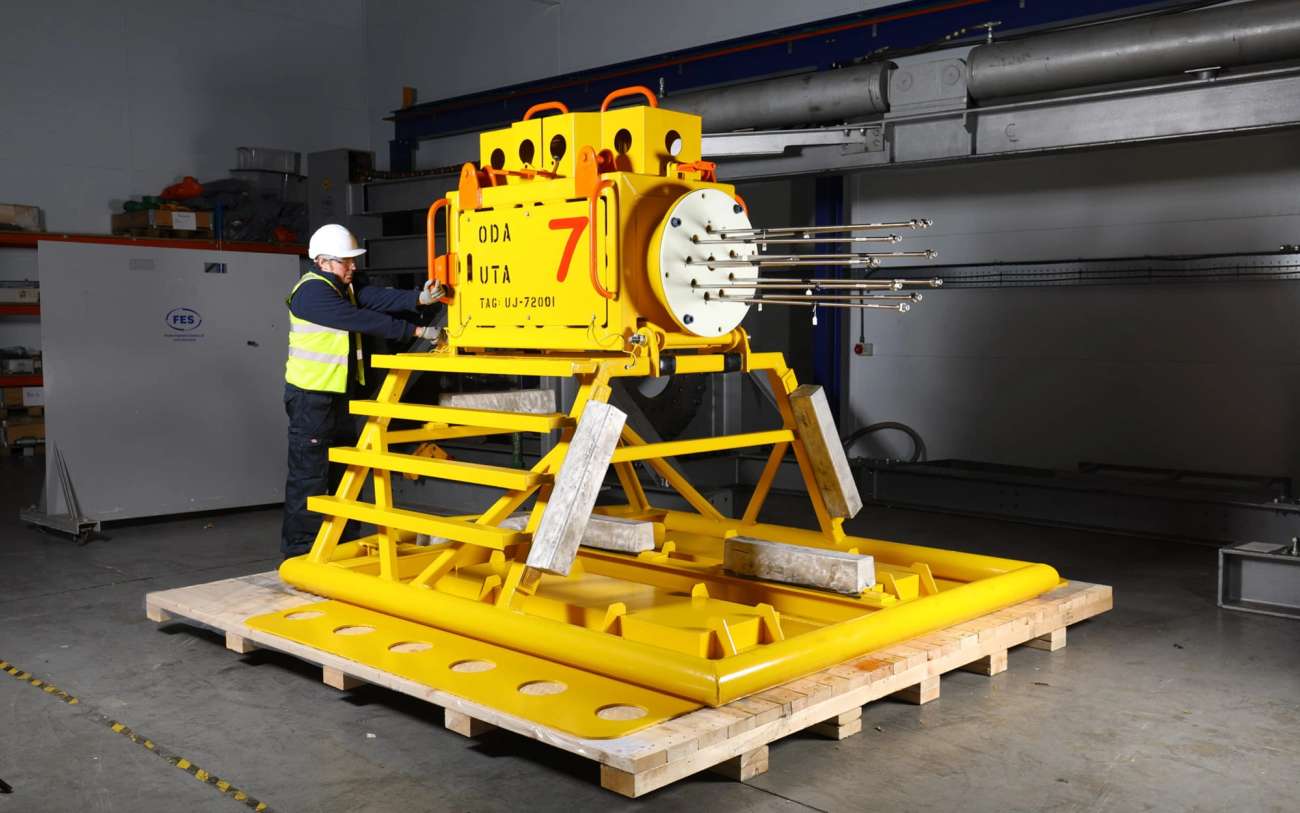
Governance & ethics
Anti-bribery and corruption (“ABC”), Ethical Employment, responsible business partnerships and proportionate client entertaining are key commercial principles.
Ethical business conduct
At Hunting, we expect everyone to be an ambassador for our principles – we behave with integrity, promoting a culture of honesty, transparency, and fairness. We expect the same from our business and trading partners (“partners”).
Our Code of Conduct brings our core principles to life, it reminds us why they are important and about the way we work.
We maintain a Hunting wide ABC programme, that includes components designed to prevent or detect potential breaches. We deliver training to help our employees understand the standards of behaviour acceptable at Hunting.
However, our ambitions do not stop there. We aim to have a positive influence across our supply chain, raising the bar on matters such as Human Rights and ABC, and issue key ethics documents, such as our Code of Conduct, to our customers and (known) suppliers. We want to create an environment where employees not only live by our principles, but also are vigilant in identifying potential concerns, and are confident about speaking up in such situations.
The independent whistleblowing hotline “Speak Up”, provided by Safecall, provides a safe and confidential method for employees to raise concerns. Concerns can also be raised in confidence by contacting the Chairman or Senior Independent Director.

Our policies
Our Code of Conduct contains policies, guidelines and instructions governing the conduct of all Hunting employees, and partners in the course of our business.
Policies such as Ethical Employment & Trading and Modern Slavery, Human Trafficking Transparency Statement, Payments to Governments and Anti-Bribery and Corruption (“ABC”) assist us all in understanding our legal and ethical responsibilities.
Quality
Ethical employment
Modern slavery
2024 Modern Slavery Report – Canada
PDF2024 Modern slavery & human trafficking transparency statement
PDF2023 Modern slavery & human trafficking transparency statement
PDF2022 Modern slavery & human trafficking transparency statement
PDF2021 Modern slavery & human trafficking transparency statement
PDF2020 Modern slavery & human trafficking transparency statement
PDF2019 Modern slavery & human trafficking transparency statement
PDF2018 Modern slavery & human trafficking transparency statement
PDF2017 Modern slavery & human trafficking transparency statement
PDF2016 Modern slavery & human trafficking transparency statement
PDF
Tax
Pensions disclosures
Personal integrity
Hunting operates with the highest personal standards and ensure that transaction flows are earned through honest competition and endeavour. We are committed to preventing our business systems and processes being used for unlawful activities.

Diligence
Our employees must always follow due diligence procedures designed to prevent someone from using Hunting to conceal criminal transactions or engage in any type of money laundering activity.
This includes screening third parties to ensure that we don’t engage in transactions with entities, or individuals, on pertinent sanctions. Processes and procedures are in place so we know our customers and their activities, can identify and escalate suspicious activity, can maintain essential documentation, and can report transactions with sanctioned countries, people or businesses.

Share dealings
To further protect our reputation for integrity, we have also implemented clear rules for share dealing.
Trading is prohibited in Hunting shares for all “insiders” when in a closed period, ahead of financial results. A formal “insider list” is maintained by the Company Secretariat, containing those individuals with access to share price sensitive information. This list is always readily available for scrutiny by the Financial Services Authority in the UK.
A conflict of interest can also adversely impact Hunting’s reputation and integrity. Situations where there appear to be a conflict of interest must be avoided. Employees and business and trading partners are required to disclose on appointment, or when the conflict arises, any interest which may affect Hunting’s business.
National & international trade
The principles, stated in our Code of Conduct, govern the way we work: we behave with integrity, promoting a culture of honesty, transparency, and fairness.
This includes our commitments to fair, ethical and transparent competition, business integrity and full compliance with all applicable statutory, regulatory, and corporate governance requirements.
All businesses, employees, business and trading partners (“partners”) of Hunting are expected to operate in line with these principles. Our principles are core at every interaction we have, and in how we do business.
Each group company has established, and enforces, compliance procedures. The Ethics and Compliance department advises on best practice to ensure compliance.

Training
Our Code of Conduct training demonstrates Hunting’s commitment to help our employees understand their responsibilities; how to act ethically and responsibly and in full accordance with the law.
We do not tolerate, directly or indirectly, offering nor accepting bribes or inducements, nor being involved in any corrupt business dealings and practices.
Attempting to improperly influence a person, Public Official or business outcome is also prohibited. We aim to do business fairly, ethically and in a transparent matter, in accordance with applicable laws and regulations that promote healthy trading and safeguard fair competition among businesses.

Compliance
Hunting’s commitment includes the prohibition of activities such as agreeing to price fixing, limit production, or customer allocation. In the same way, our Code of Conduct also governs trade compliance, including export and import controls, and trade sanctions.
We encourage all employees and partners to report any breaches, confidentially I they wish to do so, and without any fear of consequences to the Chief Compliance Officer or the Board’s Senior Independent Director.
Their contact details are available 24/7/365 and can be accessed through a mobile phone number. It allows employees and partners to seek advice and report concerns about a potential breach.
Information management
We are committed to managing data in a professional, legal and ethical manner.
Hunting respects the privacy of all individuals and recognise that the respective personal data belongs to that individual. It is our responsibility to ensure the confidentiality, integrity and availability of our systems and services and the personal data we process within them.

Privacy policy
Our privacy policy explains why personal data is collected, what it is collected for, and how it is handled and stored.
We always seek to only process the minimum required data. Personal data is held securely to prevent the data being compromised.
The Hunting Board is responsible for ensuring that Hunting adheres to best practice and meets its legal obligations with regards to data protection. The Group Data Protection Officer (“DPO”) updates the Board on data protection responsibilities, risks and issues, chairs the General Data Protection Regulation (“GDPR”) Oversight Committee and is responsible for ensure policy compliance with applicable laws and regulations.
Cyber attacks
Like all companies, small and large, Hunting could be subject to cyber-attacks. Cyber-attacks increased during the pandemic due to homeworking necessitating remote ways of working, increasing the potential attack surface of businesses.
As part of Hunting’s IT governance, employees are empowered to recognise common cyber threats by participating in a mandatory cyber security awareness training programme. Hunting has also given priority to improving collaborative working processes, ensuring employees can effortlessly share information in a safe and secure manner, whilst working with real-time information.
All incidents are reported, recorded, and reviewed and used to improve company policies, procedures and practices with regards to overall enterprise risk management, including any mission critical risks related to privacy, data integrity and cybersecurity. Utilising the National Institute of Standards and Technology Cybersecurity Framework (“NIST CSF”) v1.1, we have identified controls to achieve the specific outcomes that are important to Hunting. Newly identified compliance requirements are mapped to our existing controls within NIST CSF.
Due to the evolving threat landscape, Hunting has pivoted and focused on the shifting attack Vector(s), whilst maintaining compliance and ensuring data privacy and integrity. Hunting utilises enterprise grade near real-time replication and backup strategies between various datacentres. This ensures even with a critical failure we can failover or recover operational capabilities to an entirely different datacentre within minutes.
Quality
The Hunting goal is “Total Customer Satisfaction”.
Our commitment to the delivery of innovative, high-quality, and reliable products is of material importance to the achievement of this, and this is reflected in our Quality Policy and our Sustainability Framework.
Hunting’s total commitment to Quality is shown through operational excellence, comprehensive Quality Management System (“QMS”) supported by strong management oversight. Operational excellence is a key driver of our engagement and relationship with customers.
Quality assurance for each component manufactured is a key differentiator in our drive to be an industry-leading provider of critical components and measurement tools.

Facility certifications
Hunting’s QMS is fully compliant with ISO 9001, API Q1 (Quality) and where required our facilities are certified to these standards. Additionally, each manufacturing facility carries the applicable API Monogram License for the scope of work carried out.
Our QMS is also compliant with the globally recognised ISO 14001 (Environmental) standard and most of our facilities are operated in compliance with this standard, as well as ISO 45001 (Occupational Health and Safety Management System) and ISO 50001 (Energy Management). This further demonstrates our commitment to delivering safe and high-quality products, whilst ensuring the consistent application of sound environmental care and stewardship.
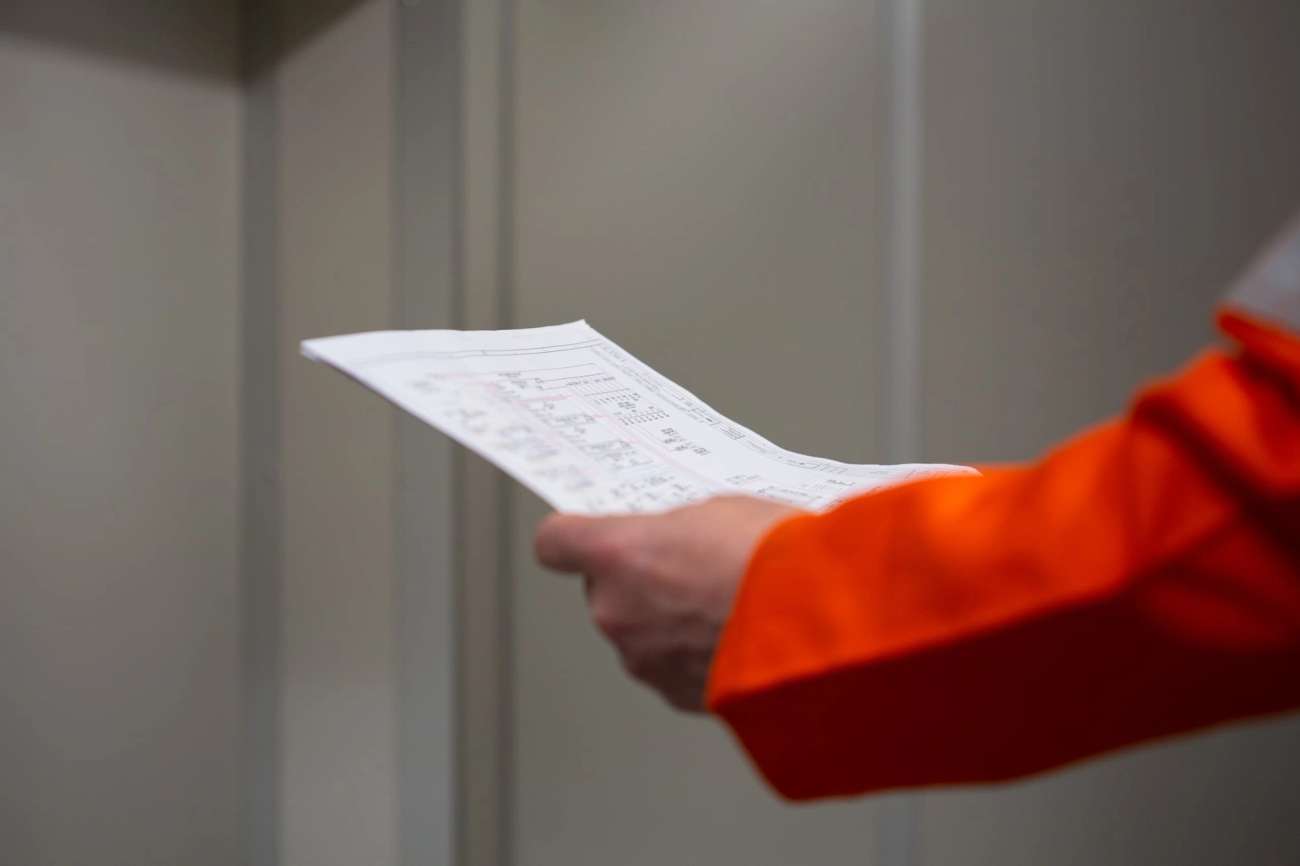
Regular audits
Most of the industries Hunting operates in are highly regulated, and those Hunting businesses are invariably required to be accredited by the customer, or the respective industry regulator.
These organisations undertake regular audits and checks on company procedures and practices, ensuring compliance with regulatory requirements. The Quality Assurance Director is a member of the Executive Committee. Also, the Board monitors compliance by receiving Quality Assurance reports at each meeting from the QA Director.


